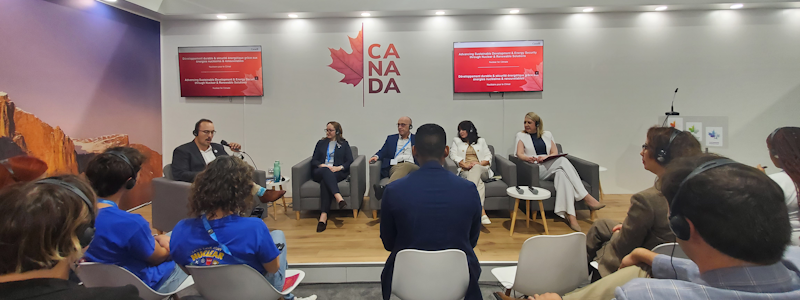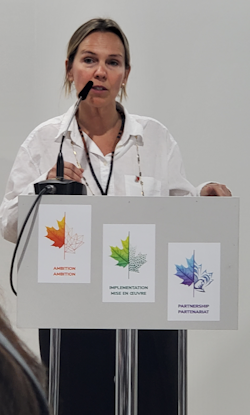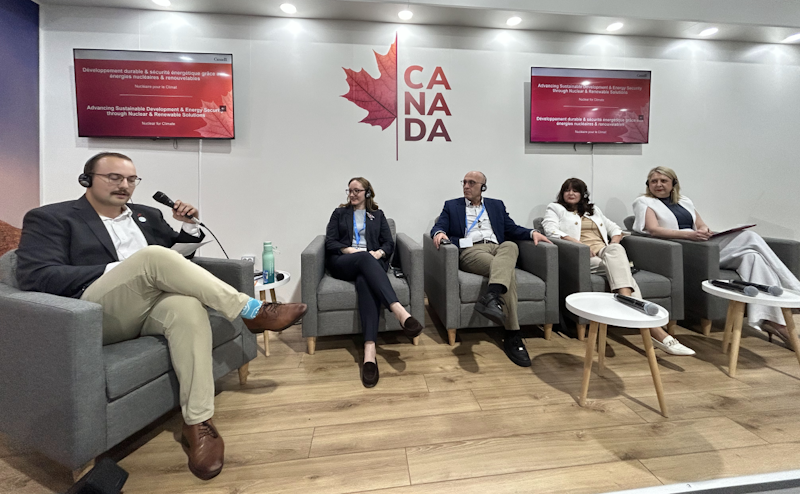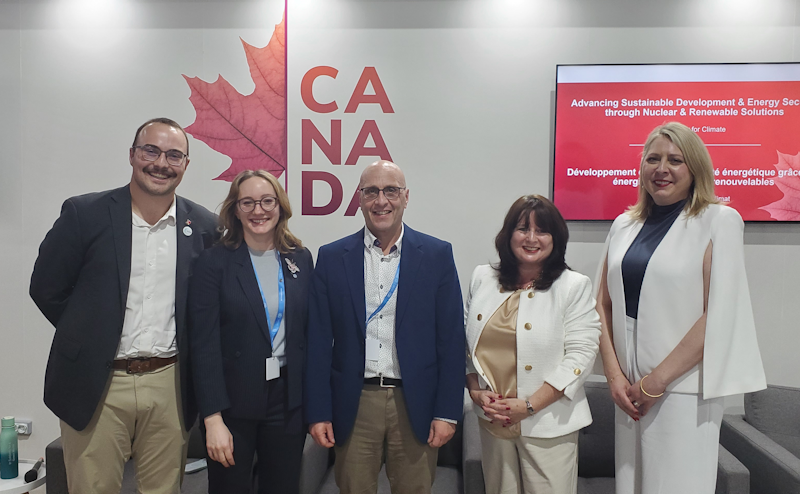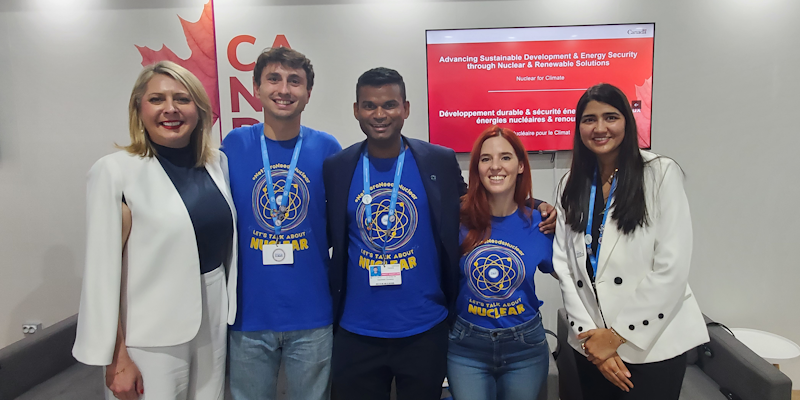A Balanced Blueprint for a Global Energy Transition: Canada’s Dual-Track Approach Showcased at COP29
BAKU, AZERBAIJAN — In a post-COP28 world, where nuclear energy has been formally acknowledged as a key component of climate action, Canada is positioning itself as a leader in a balanced, collaborative approach to the energy transition. At a landmark panel at COP29 in Baku, experts underscored how the nation is uniquely poised to harness both renewable and nuclear solutions to achieve its climate goals and bolster energy security.
The event kicked off with opening remarks from Tina Cobb, Deputy Director - Partnerships and Engagement, International Affairs
Hosted by the Government of Canada, the event, "Canada's Energy Innovation: Advancing Sustainable Development through Nuclear and Renewable Solutions," took place at the Canada Pavilion. It featured a distinguished panel moderated by Matthew Przybylowski of Nuclear 4 Climate and AtkinsRéalis, who opened the discussion by highlighting Canada's broader leadership in the nuclear sector. The panel included:
Joanna Osawe, CEO of Women in Renewable Energy (WiRE)
Michelle Branigan, CEO of Electricity Human Resources Canada
Diane Cameron, Head of the Nuclear Technology Development and Economics Division at the OECD Nuclear Energy Agency
George Christidis, VP of Government and International Relations at the Canadian Nuclear Association
The panelists highlighted the synergistic relationship between renewables and nuclear energy. As Osawe explained, "Renewables are our fastest path to decarbonization, but they need a reliable partner on the grid." Cameron echoed this sentiment, noting that "nuclear energy provides the consistent, low-emission baseload we need," which allows for the seamless integration of intermittent sources like wind and solar. This strategic partnership ensures both a swift reduction in emissions and a stable, resilient electricity system.
Beyond Energy: Nuclear Technology for Human Health
Matthew Przybylowski of Nuclear for Climate effortlessly moderated the panel
The conversation extended beyond electricity generation, with moderator Przybylowski highlighting Canada's long-standing leadership in nuclear medicine. He pointed out that isotopes produced in Canadian CANDU reactors are essential to healthcare globally. For example, isotopes like Cobalt-60 are used to sterilize approximately 40% of the world's single-use medical devices, including gloves and surgical instruments. Similarly, isotopes like Lutetium-177 and Molybdenum-99 are used for life-saving diagnostic and therapeutic treatments for cancers and other diseases worldwide.
Canada's expertise in this field, from its unique reactor technology to its expanding production capabilities, positions it to remain a global leader. The panelists noted the country is on the cusp of an even greater contribution to global health through its advancements in both existing plants and first-of-a-kind Small Modular Reactors (SMRs). This technological prowess not only addresses domestic energy needs but also serves as a critical model for international cooperation.
Human Capital and Indigenous Partnerships
WiRE Partners Net Zero Nuclear and NAYGN were part of the packed audience
The panelists also addressed the critical issues of human capital and community engagement. Branigan stressed that a successful energy transition relies on a skilled and inclusive workforce. "This journey to a sustainable energy future is creating a wide range of rewarding jobs," she said, "and it is our responsibility to ensure that all equity-deserving groups are represented and have a seat at the table." The conversation concluded with a powerful message on the essential role of Indigenous communities in energy projects. Christidis and Osawe shared success stories of partnerships, emphasizing that meaningful engagement is crucial for the long-term success and resilience of Canada's energy landscape.
The event demonstrated that Canada's energy future is not a choice between technologies but an opportunity to strategically harness them all. This collaborative approach not only serves as a blueprint for other nations—including Brazil, the host of COP30—but also reinforces Canada’s commitment to a prosperous, sustainable, and inclusive energy transition.
Learn more about Nuclear for Climate
Written by:
Andrew Osawe,
Operations Director,
Women in Renewable Energy (WiRE)

